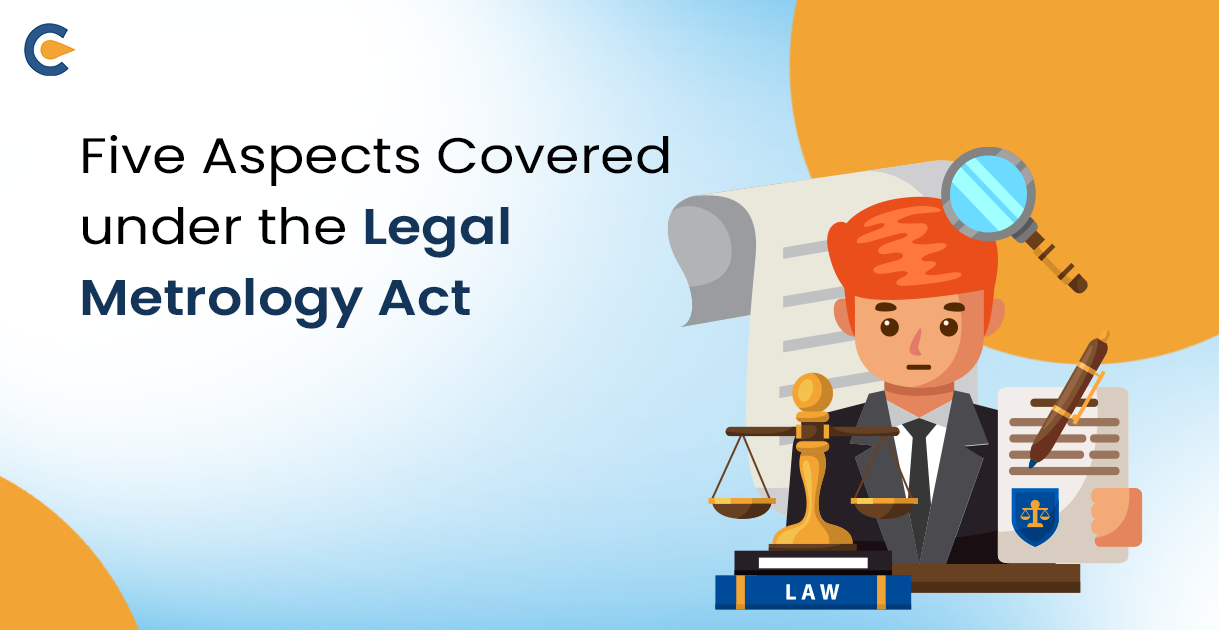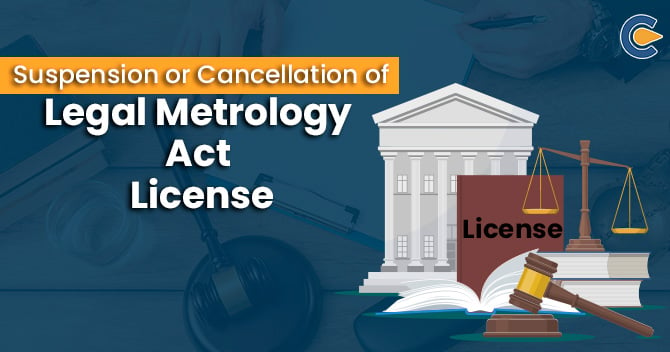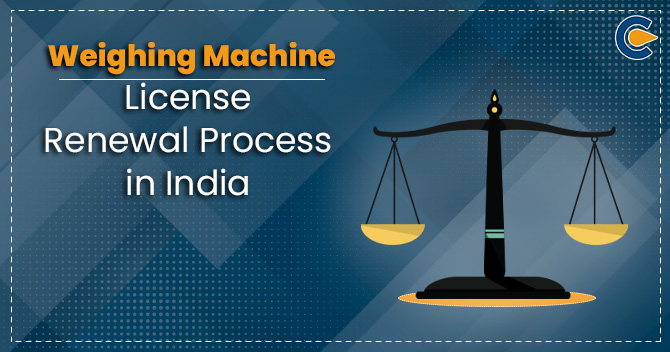The “Standard of Weights and Measures Act, 1976” and the “Standards of Weights and Measures (Enforcement) Act, 1985” are replaced by the new statute. The Act’s provisions became operative on April 1, 2011. The Legal Metrology (Packaged) Rules, 2011 cover sold commodities and specify what information on packaged goods is intended to be made for the commodity’s sale as well as how and when it must be made. IPC offences pertaining to weights and measures and their penalties.
Enforcing these regulations serves to control the weights and measures approach, which verifies the technical correctness of the measuring instruments. Once they receive permission from the Indian government, these tools or instruments are widely utilized in the public domain.
Who Can Apply for Legal Metrology Certification?
Any person who uses measurement or weight in a production process, a legal requirement, or a commercial transaction. Any individual who is/are manufactures, sells, wholesales, repairs, imports, and/or packs a product that has a component connected to weight, measure, or number.
Principal Parties Affected by the Legal Metrology Act
There are some principal parties that are affected by the Legal Metrology Act in India. The principal parties affected by the Legal Metrology Act are:
1. Dealer:
Someone who works in the trade of offering to buy, sell, provide, or distribute any weight or measure in return for a meaningful payment.
2. Importer:
Any individual, company, or other legal organization that arranges for the transportation of goods from a foreign country into a customs territory is an importer.
3. Manufacturer:
An individual or organization who makes a weight or measure, or any packaged item, in one or more pieces. They then get other pieces of the same weight or measure, combine them, and declare that the weight or measure as a whole is one they created.
4. Repairer:
A person who changes, lubricates, cleans, paints, or conducts any other work on a weight or measure is considered a repairer in order to guarantee that the weight or measure satisfies the criteria set by or under the Legal Metrology Act.
5. Packer:
Any individual or company, whether in wholesale or retail, that prepares products for sale by placing them in containers fit for sale.
Five aspects covered under the Legal Metrology Act
The five aspects covered under the Legal Metrology Act are as follows:
Legal Metrology for Cinema Hall, Restaurants and Hotels
The Legal Metrology Department has lately started taking strict actions against motels, movie theatres, hotels, and restaurants for overcharging on the sale of packaged commodities in an effort to better defend the interests of the customer. The courts in India are currently considering whether to frame rule on this aspect. All of the aforementioned enterprises have been subject to surprise inspections by the metrology departments of Gujarat, Rajasthan, Jammu and Kashmir, who have been booked for any violations of the Legal Metrology Act & Rules.
Legal Metrology for Auto Rickshaw and Cab’s Electronic or Digital Meters
Most people are unaware that the digital and electronic meters seen in caps and auto rickshaws are also subject to legal metrology, and many cab and auto-rickshaw drivers have reportedly received tickets from the legal metrology department in their respective states. In order to prevent fraud and to ensure that customers are not overcharged, the various states have also installed digital meters in taxis operated by app-based aggregators. Additionally, the customers should be informed of the amount that the meter is currently running and the total amount that they are responsible for paying for the services they have received.
Legal Metrology for Petrol Pumps
The Kerala Department of Legal Metrology has also taken the lead in another campaign to try to increase public knowledge of the tricks and techniques that gas stations may employ to defraud customers. There were reports that some of the units of the Legal Metrology Department’s Deputy Controller for the Central Zone had assessed were found to be providing less gasoline than the required amount.
Legal Metrology for LPG Cylinders
Up to 21 cases of violations of the Legal Metrology Act or Rules were discovered during inspections by the Kerala Legal Metrology Department. The Department launched a campaign to educate consumers about the Packaged Commodities Rules, which mandate that the LPG Cylinder be weighed in front of the customer prior to the delivery being finalized. This inspection was a part of that campaign. Similar charges were brought against an LPG vendor in Baramulla, Jammu and Kashmir, for failing to have a weighing scale on him as required by the Legal Metrology Laws.
Legal Metrology for Medical Equipments of Different Types and Stents
Angioplasty, which is frequently used to treat constricted coronary arteries, is the insertion of a small tube into hollow bodily structures such as arteries or urinary tubes. The tube holds the passageway open in order to guarantee precise measurements of medical equipment; the Legal Metrology Act is implemented. Costs associated with angioplasty were decreased by the National Pharmacy Pharmaceutical Pricing Agency’s effect on Maximum Retail Price (MRP).
The Union Minister wants to include stents in the category of pre-packaged goods. The Legal Metrology Department in Maharashtra found 26 institutions in violation of regulations, including inaccurate baby-weighing techniques. Catheters, gloves, breathing circuits, and other medical equipment are all under legal examination. The goal of enforcement is to keep healthcare procedures compliant and up to par.
Non-Compliance of Legal Metrology Act and Rules
Non-compliance with the legal metrology act and rules can lead to various penalties and even imprisonment in some cases.
- Individuals who use non-standard weight and measure face a maximum penalty of up to 25,000/-; if they commit the same offence twice, they will serve approximately six months in jail in addition to the fine.
- If an individual alters the weight and measure, they risk a fine of ₹25,000/-; if they repeat the offence, they will serve six months in jail. It can also be extended to one year, with or without a fine.
- A person will be fined ₹25,000 if they are found producing or selling non-standard weight and measure products. If they do the same offence again, they risk serving three years in jail, regardless of the punishment.
- The consequences of tampering with the license are severe enough to warrant a fine of up to ₹25,000, a year in prison, or both.
LMPC Certification and Metrology Act Consulting with Corpbiz
Corpbiz specializes in offering legal metrology and packaged commodities advisory services, including packaged commodity registration. Clients choose Corpbiz for a variety of reasons, including their team of subject matter experts who possess an in-depth understanding of regulatory affairs and legal compliance. The experts at Corpbiz are especially skilled in managing legal metrology and packaged commodity registration, making sure that customers receive thorough and knowledgeable support throughout the registration procedure. Corpbiz’s LMPC consulting services simplify processes so that customers may effectively and efficiently fulfil regulatory obligations.
Frequently Asked Questions
What is the purpose of the Metrology Act in law?
The Legal Metrology Act of 2009 is a significant law in India that attempts to create consistency, precision, and transparency in the weights, measures, and packaging of commodities.
Are there additional detailsthat the particular categories of goods must disclose?
It is possible for food items to need further disclosures about their components, nutritional value, food additives, and usage guidelines. Details, including the place of origin, usage instructions, safety alerts, and warranty information, may be required for non-food goods.
Are there any exemptions from the Metrology Act rules?
Indeed, there are exclusions for packages weighing more than 25 kg or 25 litres, for specific categories (such as fertilizer and cement) that are offered in bags weighing more than 50 kg, and for products intended for institutional or industrial users.
What are the advantages of registration under the Metrology Act?
Benefits include avoiding fines and penalties from the government, improving customer trust, and expanding market prospects.
Is it legal to use or sell weights or measures that aren't stamped?
Weights and measures must only be checked and stamped by a licensed manufacturer or dealer, and only then may they be sold, offered, displayed, possessed for sale, utilized, or stored for use in any transaction or for protection.
Does the certificate of verification have to be displayed?
Every certificate of verification issued under the Act must be prominently displayed in the areas where these weights or measures are being, intending to be, or are likely to be used in transactions or for protection.
What is the Legal Metrology Act's Rule 5?
Every weight and measure must comply with the Metric System, which is based on the international System of Units, according to Section 5 of the Legal Metrology Act. The following are the fundamental units of weights and measures:
· The unit of length is the meter.
· The unit of mass will be the kilogram.What purpose does legal metrology serve?
Legal metrology addresses measurement and weight units, measurement and weight procedures, and measurement and weight devices in connection to the necessary legal and technological criteria that aim to ensure public guarantee in terms of security and accuracy.
Is a license required to produce, market, or fix weights and measures?
Indeed, in order to deal with weighing and measuring devices, the Department grants licenses to manufacturers, dealers, and repairers of weights and measures. These licenses are mandatory.
Where may I apply to become a registered importer or packer of packaged goods?
Applications may be submitted to the Controller of Legal Metrology of the States and Union Territories or the Director of Legal Metrology, Government of India.
Read Our Article: Mandatory Requirements For Packaged Commodities Under Legal Metrology Act











